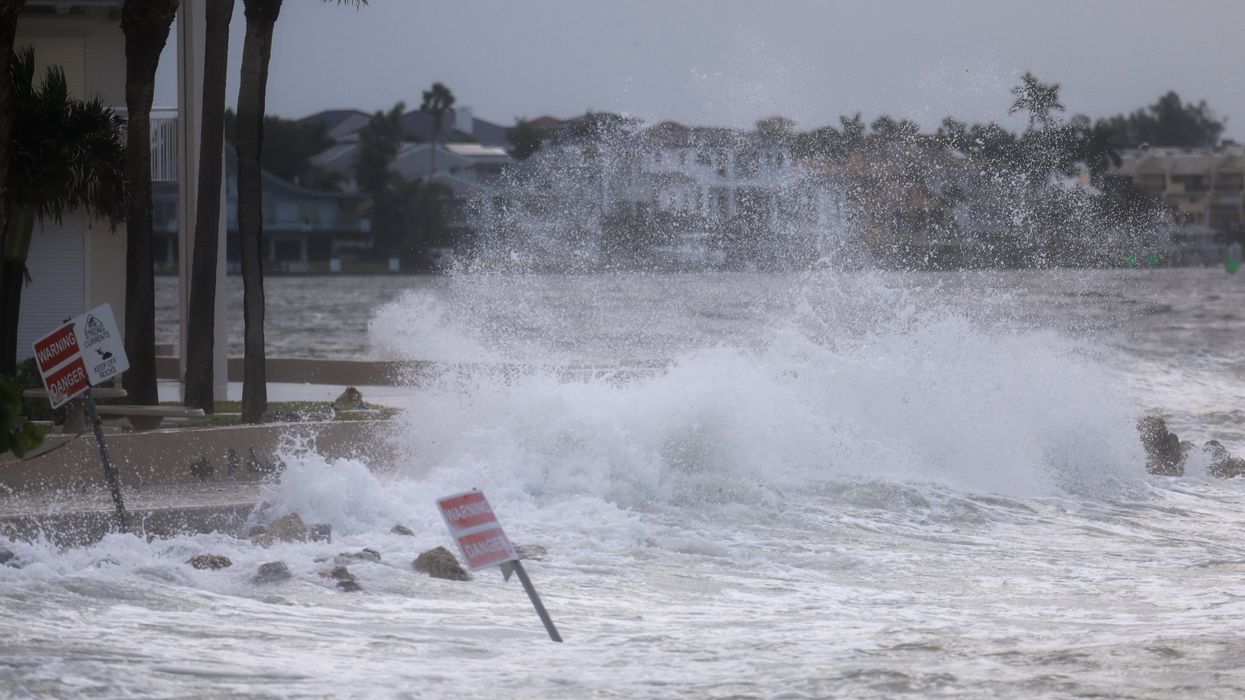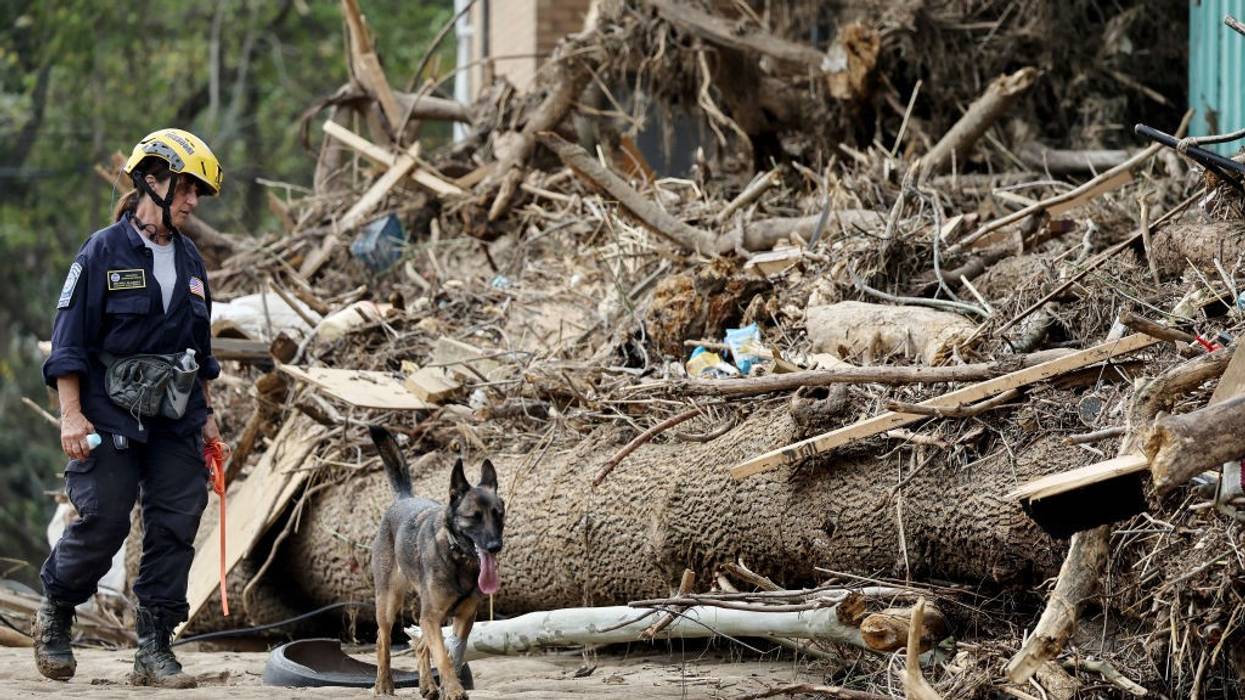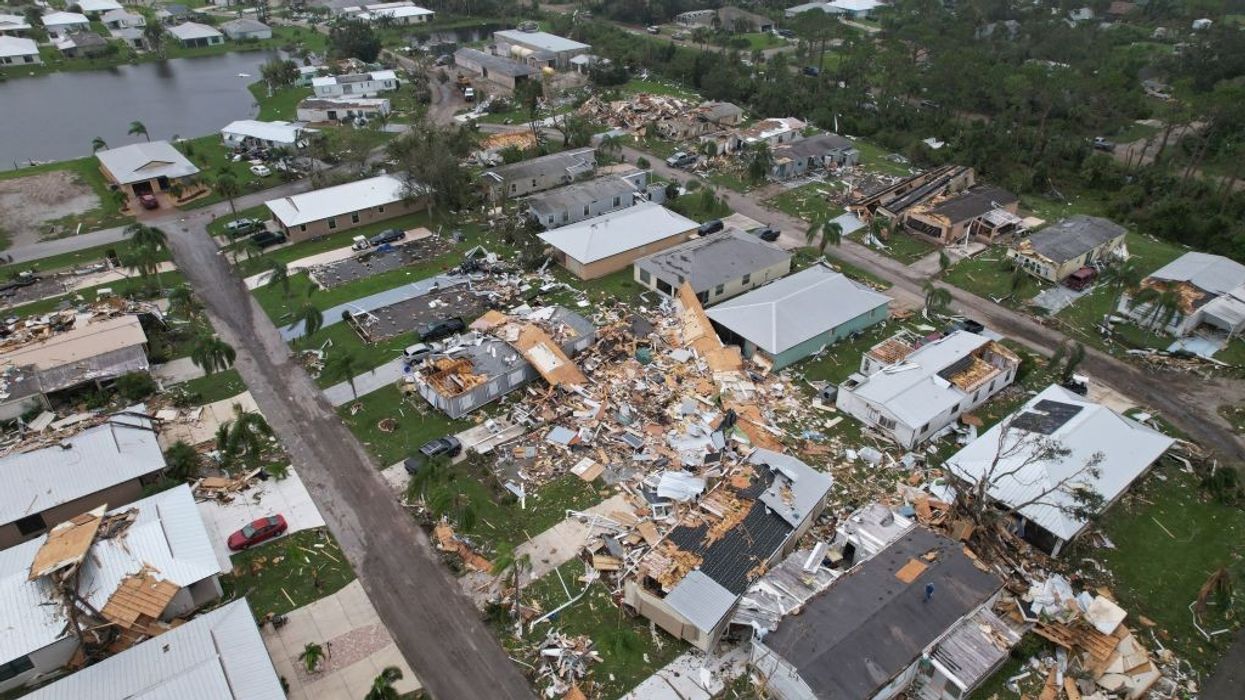'Never Happened Before': WMO Finds Past 10 Years Have Been 10 Hottest on Record
"While a single year above 1.5°C of warming does not indicate that the long-term temperature goals of the Paris agreement are out of reach, it is a wake-up call," wrote the secretary-general of the World Meteorological Organization.
A report released by the World Meteorological Organization on Tuesday found that not only was 2024 the warmest year in a 175-year observational period, reaching a global surface temperature of roughly 1.55°C above the preindustrial average for the first time, but each of the past 10 years was also individually the 10 warmest on record.
"That's never happened before," Chris Hewitt, the director of the WMO's climate services division, of the clustering of the 10 warmest years all in the most recent decade, told The New York Times.
All told, the agency's State of the Global Climate 2024 adds new details to the public's understanding of a planet that is getting steadily warmer thanks to human-caused greenhouse gas emissions.
2024 clearly surpassed 2023 in terms of global surface temperature. 2023 recorded a temperature of 1.45°C above the average for the years 1850-1900, which is used to represent preindustrial conditions, according to the report.
The report from the WMO, a United Nations agency, includes "the latest science-based update" on key climate indicators, such as atmospheric carbon dioxide, ocean heat content, and glacier mass balance. Many of these sections report grim milestones.
In 2023, the atmospheric concentration of carbon dioxide reached the highest levels in the last 800,000 years, for example, and in 2024, ocean heat content reached the highest level recorded in the over half-century observational period, topping the previous heat record that was set in 2023.
As of 2023, two other greenhouse gases, methane and nitrous oxide, also reached levels unseen in the last 800,000 years.
"Over the course of 2024, our oceans continued to warm, sea levels continued to rise, and acidification increased. The frozen parts of Earth's surface, known as the cryosphere, are melting at an alarming rate: glaciers continue to retreat, and Antarctic sea ice reached the second-lowest extent ever recorded. Meanwhile, extreme weather continues to have devastating consequences around the world," wrote WMO Secretary-General Celeste Saulo in the introduction to the report, which drew its findings from data drawn from dozens of institutions around the world.
"While a single year above 1.5°C of warming does not indicate that the long-term temperature goals of the Paris agreement are out of reach, it is a wake-up call that we are increasing the risks to our lives, economies and the planet," wrote Saulo.
In 2015, 196 party countries signed on to the agreement to pursue efforts "to limit the temperature increase to 1.5°C above preindustrial levels." According to the United Nations, going above 1.5ºC on an annual or monthly basis doesn't constitute failure to reach the agreement's goal, which refers to temperature rise over decades.
There are multiple methods that aim to measure potential breaches of 1.5°C over the long term, according to the report. The "best estimates" of current global warming based on three different approaches put global temperatures somewhere between 1.34°C and 1.41°C compared to the pre-industrial period.
The report also details the damage brought on by a number of extreme weather events last year, including Hurricanes Helene and Milton in the United States, and Cyclone Chido, which impacted the French territory of Mayotte.


